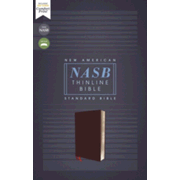Our debt is to the Holy Spirit, not to the flesh. The flesh (in the narrow sense of sinful flesh in rebellion against God) gives us nothing good. Our debt is to the Lord, not to the flesh. Living after the flesh ends in death and the flesh does NOT offer us life.
Romans 8:13 – Kill Sin
The New Testament relates the sinful nature to the sarx, or “flesh.” While originally referring to the material body, Paul innovatively equates it with the sinful nature (Romans 7:5-8;13; Galatians 13, 19). 1
The corrupt inclinations and passions are called deeds of the body because they are supposed to have their origin in the fleshly appetites.
God Empowers
We believers are engaged in a battle: the flesh against the Spirit, and the Spirit against the flesh. If you live to indulge your carnal propensities, you will sink to eternal death (Romans 7:23). It takes the indwelling Spirit of God to provide the victory (Romans 8:13; Galatians 5:17). 2
Through the Spirit – By the aid of the Spirit; by cherishing and cultivating his influences. What is here required can be accomplished only by the aid of the Holy Spirit.
When the believer is wholly dedicated to God, progress in sanctification is assured. Then the Holy Spirit will put to death the deeds of the body (Romans 8:13). Christ sanctifies the believer by producing holiness in him by the Spirit (Hebrews 2:11). 3

“The Holy Spirit also works sanctification in the life of the believer. Sanctification means the continued transformation of moral and spiritual character so that the life of the believer actually comes to mirror the standing that he or she already has in God’s sight. While justification is an instantaneous act giving the individual a righteous standing before God, sanctification is a process of making the person holy or good. The work of the Holy Spirit, then, is not merely the negative work of mortification of the flesh (Romans 8:13) but also the production of a positive likeness to Christ.” 4
Sin is a matter of the entire person, 5 not just one aspect of the person, such as the body or reason. Several references make clear that the body is affected (e.g., Romans 6:6, 12; 7:24; 8:10, 13). 6
We are to put to death the works of the body (Romans 8:13) and present our bodies as a living sacrifice (Romans 12: 1, 2). 7
Paul uses the word “mortify” (put to death) as a kind of play upon the word “die”.
There can be no safety, no holiness, no happiness, to those who are out of Christ: those who do not put sin to death. No “safety,” because they are under the condemnation of the law (Romans 8:1); no holiness, because only those united to Christ have the spirit of Christ (Roman 8:9); no happiness, because carnally minded is death (Romans 8:6)” 8
You shall live, be happy, and be saved. Either your sins must die, or you must. If they are suffered to live, you will die. If they are put to death, you will be saved. No man can be saved in his sins.
The godly themselves need this caution. They must not think, that because they are elected and justified, they may do and live in continued sin.
The Apostle Paul is not satisfied with assuring them that they are under no obligation to the flesh, to hearken to its suggestions, without reminding them where it will end if they do. He tempers this by the bright alternative, that if they do, through the Spirit, mortify the deeds of the body, such a course will infallibly end in “life” everlasting. And this leads the apostle into a new line of thought, opening into his final subject, the “glory” awaiting the justified believer.
The divine working in the believer is a progressive matter. The aim of this divine working is likeness to Christ Himself. This was God’s intention from all eternity (Romans 8:29). 7
Beginning with this passage (vs. 13), Paul entirely dismisses the carnal state.
This closes the argument of the apostle for the superiority of the gospel to the Law in promoting the purity of man. By this train of reasoning, he has shown that the gospel has accomplished what the Law could not do – the sanctification of the soul, the destruction of the corrupt passions of our nature, and the recovery of man to God. And now that he has finished that part, which he had begun in Romans 6:1, he goes on to describe the pure and living state, which is the inheritance of believers.
And this leads the apostle into a new line of thought, opening into his final subject, the “glory” awaiting the justified believer.
______________Affiliate link – SHOP: _______________
_This ad is for my favorite version of The Bible _
_____but click on it to go to the whole store______


NASB Comfort Print Thinline Bible, Red Letter Edition–bonded leather, burgundy (click here)
By Zondervan
The beloved 1995 Edition of the New American Standard Bible is now easier to read with Zondervan’s exclusive NASB Comfort Print® typeface. This edition of the NASB Thinline Bibles is available in a variety of sophisticated designs in a portable, easy-to-read format.
- The full text of the New American Standard Bible, 1995 Edition
- Exquisite, durable covers
- Less than one inch thick
- Double-column format
- Presentation page
- Two satin ribbon markers
- Words of Christ in red
- Exclusive Zondervan NASB Comfort Print 9 point type
Features:
____________________________________________
In conclusion, consider what the Daily Bread email message sent on 03/14/2005 11/21/2008, and 06/05/2023 says,

Romans 8:13 – for if you are living according to the flesh, you must die; but if by the Spirit you are putting to death the deeds of the body, you will live. (NASB)
We must do our part toward living a holy life of victory and growing more and more into the likeness of Jesus. Holiness is a joint venture in which the Holy Spirit enables, but we must act and we must choose to not “live according to the sinful nature.” God, through the Holy Spirit, provides the power for us to “put to death the misdeeds of the body” and move from a mediocre life void of victory to “I can do everything through Him who gives me strength” (Philippians 4:13).
You Can Receive The Daily Bread, for FREE.
To receive the Daily Bread email messages, free on Mon., Wed., and Fri., in your email inbox, just fill in the form below or send an email, and ask to be added, to jmikeh@jmhowington.com
References:
- , pg. 278.
- Henry C. Thiessen (revised by Vernon D. Doerksen), Lectures in Systematic Theology (Grand Rapids, MI: Eerdmans, 1981), pg. 256.
- Henry C. Thiessen, Lectures in Systematic Theology, pg. 292.
- Millard J. Erickson, Christian Theology (Grand Rapids, MI: Baker Book House Company, 1985), pg. 875.
- Berkhof, Louis, The History of Christian Doctrines (Grand Rapids, Michigan: Baker Book House, 1976), pg. 247.
- Millard J. Erickson, Christian Theology, pg. 628.
- Ibid. pg. 970 – 971.
- , pg. 404.
